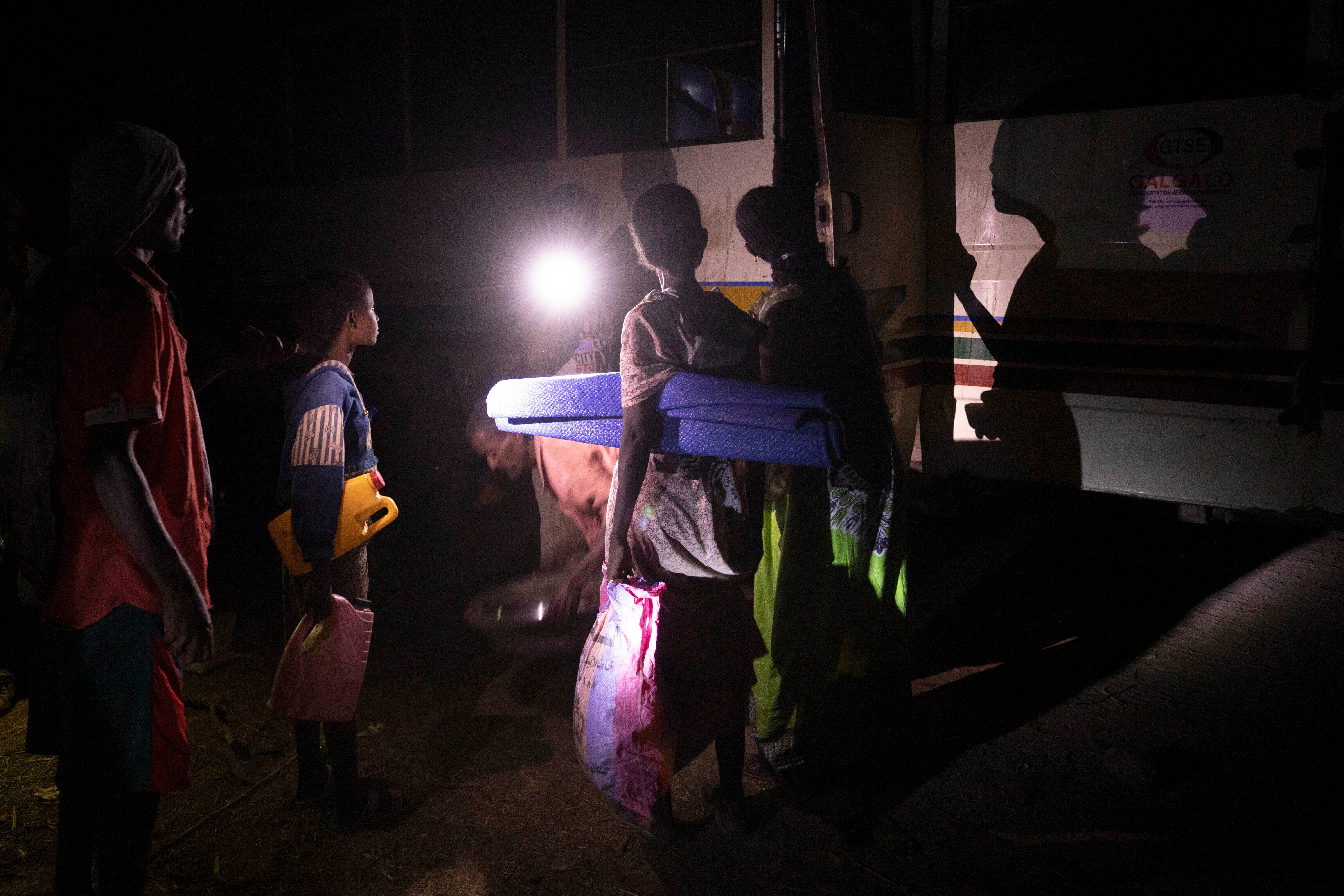UN: Ethiopia may not have control of a large part of Tigray
The United Nations humanitarian chief has privately told the U.N. Security Council that Ethiopia may not have control of up to 40% of the territory in its embattled Tigray region and does not have full command of forces from neighboring Eritrea operating there

Your support helps us to tell the story
From reproductive rights to climate change to Big Tech, The Independent is on the ground when the story is developing. Whether it's investigating the financials of Elon Musk's pro-Trump PAC or producing our latest documentary, 'The A Word', which shines a light on the American women fighting for reproductive rights, we know how important it is to parse out the facts from the messaging.
At such a critical moment in US history, we need reporters on the ground. Your donation allows us to keep sending journalists to speak to both sides of the story.
The Independent is trusted by Americans across the entire political spectrum. And unlike many other quality news outlets, we choose not to lock Americans out of our reporting and analysis with paywalls. We believe quality journalism should be available to everyone, paid for by those who can afford it.
Your support makes all the difference.The United Nations humanitarian chief has privately told the U.N. Security Council that Ethiopia may not have control of up to 40% of the territory in its embattled Tigray region and does not have full command of forces from neighboring Eritrea operating there.
Details of the briefing by Mark Lowcock were shared by diplomats who spoke on condition of anonymity because Wednesday’s meeting was a closed-door one.
The Tigray conflict, which has entered its fourth month, remains largely in the shadows as Ethiopia faces growing pressure to open the region to journalists, independent investigators and far more humanitarian aid. Thousands of people have been killed as Ethiopian and allied forces fight those of the now-fugitive Tigray government that once dominated the country’s government for nearly three decades.
Available information indicates that Ethiopia’s government now controls 60% to 80% of the territory in Tigray, Lowcock told diplomats. And some of the forces that sided with Ethiopian ones earlier in the conflict are reportedly now pursuing their own goals, he said.
Ethiopia’s government has denied the presence of soldiers from Eritrea, a bitter enemy of the former Tigray leaders, but witnesses have described widespread looting, killing and other abuses.
“Eritrean forces are almost everywhere in Tigray,” one man who managed to travel from northern Tigray to the regional capital, Mekele, told The Associated Press this week. He described widespread looting of health centers and people dying from lack of care, with little to no communication or transport links to rural areas. He spoke on condition of anonymity because of concerns for family members.
A senior official in the interim Tigray government, Mesfin Desalegn, in an interview with the pro-government Abbay Media outlet this week said Eritrean soldiers had entered the conflict “to destroy” the Tigray forces, “but it should have been managed. It should have been controlled."
People have been “massacred,” he said, describing an atmosphere of “complete vengefulness.” He called for the Eritrean forces to “cease what they are doing.”
The United States last month told the AP it had pressed senior Eritrean officials for the immediate withdrawal of their forces from Tigray. The U.S. did not say how Eritrea, one of the world’s most secretive nations, responded. Eritrea’s information minister in recent days has denounced “frenzied defamation campaigns.”
The fighting in Tigray has the potential to destabilize other parts of Ethiopia, Africa’s second-most populous country and the anchor of the Horn of Africa, as security forces are deployed to the region, the U.N. humanitarian chief told the Security Council.
And starvation is a growing concern. Lowcock said the U.N. has received reports that food is scarce in markets mainly because it was harvest time when the conflict began. Main supply routes remain cut, cash is scarce and some people are reportedly eating leaves to survive.
Ethiopia's government has said it is reaching more and more people with aid, and it has privately told Biden administration officials that life is returning to "normalcy."
___
Lederer reported from the United Nations.